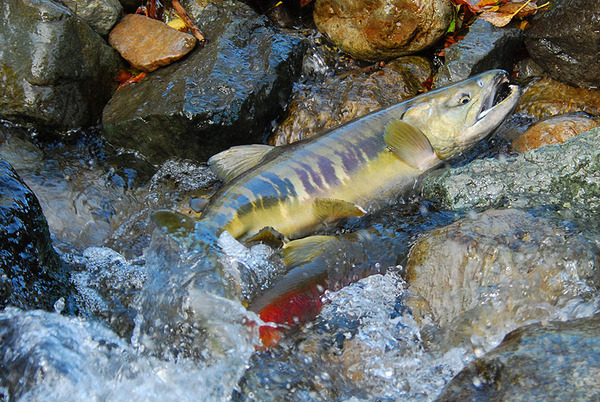Salmon (Oncorhynchus keta) is a fish that lives in seawater and belongs to the family Salmonidae. They spend most of their life cycle primarily in the ocean before migrating back to freshwater areas to lay their eggs. The following is a detailed introduction to salmon:

Life History: Salmon are a migratory fish that typically grow and mature in the ocean before returning to freshwater areas to spawn. Their spawning locations are usually in the upper reaches of rivers, such as some rivers in Alaska. The female salmon digs a shallow pit and lays thousands of eggs, which the male then sprays with sperm to complete the fertilization process.
Appearance characteristics: The body of salmon is spindle-shaped, the back is dark green to blue-green, the sides are silvery white, and there is a dark vertical stripe on the back. Adult males often change color during spawning, taking on a red to orange body color.
Food habits: Salmon are carnivorous fish and mainly feed on zooplankton, shrimps and small fish. While living in the ocean, they are important predators.
Economic value: Salmon is an important commercial fishery resource and is valued by many countries and regions. Its meat is plump and nutritious, making it a favorite ingredient for many people.
To sum up, salmon is a fish that lives in seawater and has important economic and ecological value. They migrate to freshwater areas to lay eggs during their life cycle, but primarily live in the ocean.
animal tags:
We created this article in conjunction with AI technology, then made sure it was fact-checked and edited by a Animals Top editor.